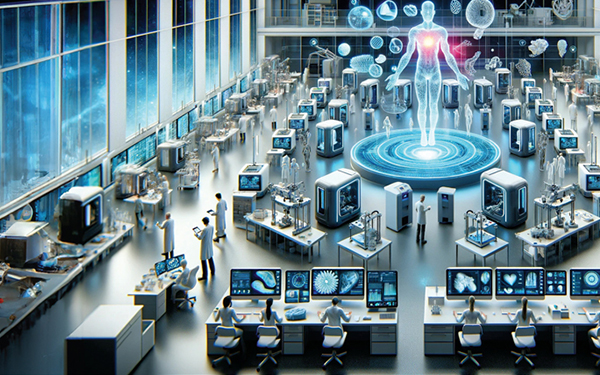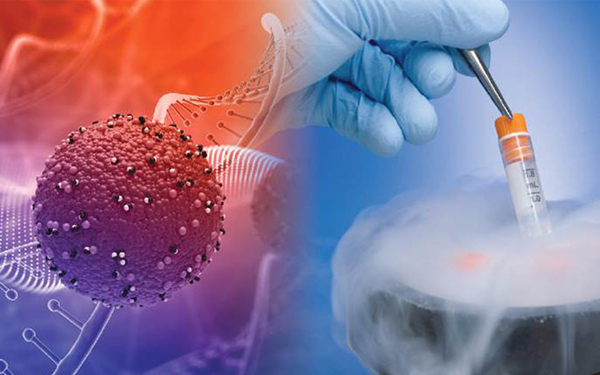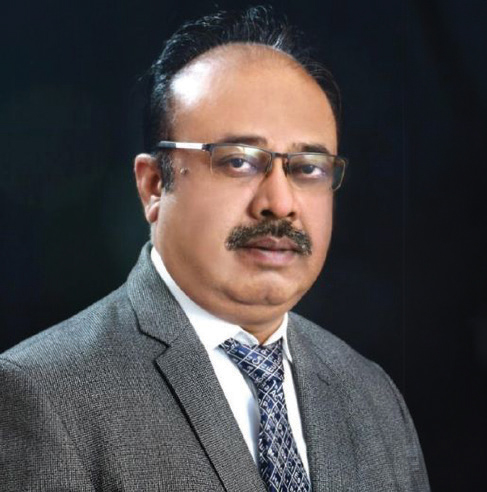Exploring the under-explored: Bioprospecting of extremophiles by Dr. Uday Anna pure & Dr. Joyita Sarkar
Dr. Uday Annapure, a distinguished luminary in the field of Food Engineering & Technology, currently serves as the Director at the Institute of Chemical Technology (ICT), Jalna, Maharashtra. Dr. Uday's illustrious career has been marked by profound contributions to academia, research, and innovation.
As the former Head of the Department of Food Engineering & Technology at ICT, Mumbai, Dr. Uday has nurtured the academic aspirations of numerous scholars. His mentorship has guided 111 Ph.D. and M.Tech students, with ongoing supervision for several more aspiring scholars. Dr. Uday's research endeavors span across pioneering domains including Cold Plasma Processing, Plant Proteins, Food Biotechnology, and Bioprocessing, among others. With an impressive portfolio of 175 International Research papers, along with numerous authored book chapters and thousands of Research Citations, Dr. Uday stands at the forefront of academic excellence. His innovative contributions have also led to the grant of several patents.
In addition to his scholarly pursuits, Dr. Uday has spearheaded 17 Government-sponsored and Industry-sponsored projects. Currently, he is deeply engaged in several intriguing research endeavors. Dr. Uday's remarkable achievements have been duly recognized through prestigious accolades such as the Sri Somalal Vyas – 'SEA Innovation Award', the 'UGC-BSR Mid-Career' Award Grant, and two 'Best Teacher' Awards. His exemplary performance has also garnered the attention of the Government of India, earning him the esteemed BOYSCAST Fellowship. This fellowship facilitated his enriching academic sojourns at Washington State University and the University of California, underscoring his global impact and collaboration in academia.
A proud Life Member of numerous esteemed National and International Associations, Dr. Uday remains deeply committed to the advancement of his field and the nurturing of future generations of scholars. Dr. Uday Annapure's enduring dedication, scholarly prowess, and visionary leadership continue to inspire and shape the landscape of Food Engineering & Technology, both nationally and globally.
Dr. Joyita Sarkar has pursued PhD from Indian Institute of Technology Kanpur and undertaken post-doctoral research in Savitribai Phule Pune University. Currently, she is working as Assistant Professor at Institute of Chemical Technology, Marathwada Campus, Jalna. Her research interest lies in the area of biomaterials and tissue engineering for applications in hepatic reconditioning, differentiation and drug screening. She has also received DST-AWSAR award in 2018 in post-doctoral category for popular science writing.
Abstract
An Extremophile is an organism that can live in extreme environmental conditions. The term was coined by MacElroy in 1974. These organisms especially microorganisms, have gained attention for their potential in biotechnological and biomedical applications. They produce bioactive compounds such as antibiotics, antioxidants, cytotoxic compounds, etc. with diverse properties that have potential applications in biomedical, agricultural, industrial, and environmental remediation. However, exploring beneficial products from extremophiles i.e. bioprospecting must be guided by ethical considerations to mitigate potential environmental impacts.In pursuit of novel bioactive molecules such as antimicrobial, anticancer immunomodulating agents, etc., researchers are now diverging their attention to extremophiles whose habitat is in harsh environments like permafrost regions, hydrothermal vents, hot springs, soda lakes, etc. These organisms can withstand extreme conditions of temperature, water activity, salt concentrations, pH, oxygen concentration, pressure, etc. The study and application of these bioactives from extremophiles is known as bioprospecting which has immense biotechnological and biomedical potential. One of the common examples is ectoine derived from organisms growing in high salt concentrations, which is widely used in skin protection products. The extremophiles have unique adaptations such as temperature extremities (-2°to 20°C or 55° to 121°C), salt-tolerance (2-5 Molar), and pH-stability (more than 8 or less than 4) to thrive in inhospitable environments. By harnessing these properties, new dimensions could be burgeoned for innovative solutions for pressing biotechnological and biomedical issues.
One of the most promising applications of extremophiles lies in the field of medicine. Extremophilic microorganisms produce bioactive compounds that exhibit anticancer, antibacterial, antifungal, and antiviral properties. For instance, certain extremophiles from deep-sea hydrothermal vents produce enzymes with noteworthy activity at high temperatures thereby rendering them to be vital tools in molecular biology. Additionally, antibiotics, for example, penicillatide B, waspergillamide B, fusaperazine F, etc., derived from extremophiles have shown activities against drug-resistant organisms like methicillin-resistant Staphylococcus aureus exhibiting a promising solution towards multidrug-resistant pathogens.
By cloning extremophile genes involved in stress response mechanisms, genetically engineered crops can be engendered with improved endurance to environmental stress such as drought and salinity. For instance, an H(+)-pyrophosphatase gene from Thellungiella halophila has been cloned and expressed in tobacco plants to enhance salt tolerance. Thus, the stress response mechanism of crops can be enhanced with the aid of extremophiles thereby increasing productivity. Sustainable biofertilizers and stimulants can also be sourced from extremophiles that promote soil fertility and nutrient uptake by crops and enhance production. For example, the growthpromoting effects of Arthrospira platensis, a marine cyanobacteria, have been assessed in papaya and petunia.

On the other hand, enzymes derived from extremophiles have vast opportunities in the food, textile, and beverage industries. For example, extremophilic enzymes such as lipases and proteases are used in detergent formulations for their improved performance under extreme pH and temperature, leading to efficient and environmentally friendly cleaning products. These enzymes also impart aroma and improve flavor during food processing. Glucosidase enzymes isolated from extremophiles have been shown to enhance the aroma of wine and fruit juices. Further, extremophiles are also being explored for their potential in bioremediation,(a biotechnological approach utilizing living organisms like plants and bacteria to decontaminate affected regions). Certain extremophiles possess the ability to metabolize toxic compounds and thrive in polluted environments, resulting in cleaning up contaminated sites and restoring ecosystems. By exploiting the metabolic capacities of extremophiles, innovative bioremediation strategies can be developed to alleviate environmental pollution.
Despite the immense potential of extremophiles, their exploration is subject to ethical, and conservation concerns due to their fragile and vulnerable habitat. Rigorous ethical standards and sustainable practices should be undertaken while conducting bioprospecting activities. Irresponsible bioprospecting practices such as non-compliance with regulations and ignoring policies of the Endangered Species Act, ignoring the rights of the local community, overexploitation of natural resources, etc. could disrupt and irreversibly damage ecosystems. A classic example of such damage is the Rose Garden hydrothermal vent. It has been observed that repeated visits to this vent have led to the disappearance of original traits and the occurrence of new lava and fauna.
Overall, the bioprospecting of extremophiles represents a frontier of exploration with vast potential for scientific discovery and technological innovation. By ensuring a balance between scientific progress and environmental conduct, we can unlock the full potential of extremophiles and ensure sustainability.
References
- https://insciter.com/2022/03/07/marine-bioprospectingan-underwater-world-of-opportunity/
- https://ars .els-cdn.com/content/ image/1-s2.0-S2666517422000311-gr1_lrg.jpg
- https://www.frontiersin.org/files/Articles/447668/fmicb-10-00780-HTML-r2/image_m/fmicb-10-00780-g001.jpg
- www.interridge.org











